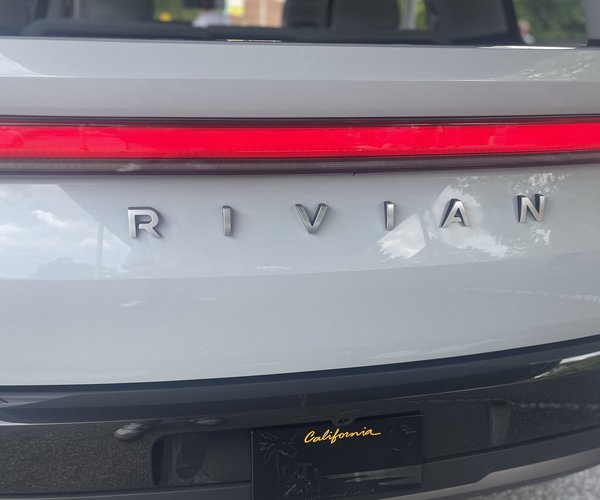NEWTON COUNTY – Changes to how the Newton County Board of Commissioners handles citizens’ comments are in the works.
At the four-hour meeting on March 7, county attorney Patrick Jaugstetter presented a draft of a new ordinance covering how citizens’ comments are conducted at commissioner meetings.
This comes after the topic first appeared at the April 2 meeting, when the board considered removing the second portion of citizens' comments altogether. A substitute motion made by District 1 commissioner Stan Edwards and seconded by District 2 commissioner Demond Mason allowed the topic to be tabled for 30 days to draft an updated rules of decorum.
In Jaugstetter’s presentation, he was clear to point out that Georgia law, the Georgia Open Meetings Act, the Georgia Constitution and the United States Constitution does not require a time for public comments in government board meetings. He did clarify that if public comments were to be present, then the meeting is designated as a public forum.
Jaugstetter then cited the current rules in place for public comments, but made the suggestion to place whatever rules the board desired to follow in the form of an ordinance.
Those rules of decorum were presented in the form of a draft ordinance, to which Jaugstetter summarized section 1 letter-by-letter.
- 1a: A time that is required for public comments for agenda topics only, with a 30-minute time limit.
- 1b: A time that is required for public comments for any matter pertaining to county government, with a 30-minute limit.
- 1c: Everyone has the opportunity to speak for no more than three minutes.
- 1d: The implementation of a sign-in sheet for public comments on a first come, first serve basis.
- 1e: No member of the public should be placed on the agenda except for in the time of public comments.
- 1f: Jaugstetter said, “No member of the public shall be permitted to make personal, impertinent, slanderous or profane remarks to any member of the board, staff or general public. Any person who makes such remarks or who utters loud, threatening, personal or abusive language or engages in any other disorderly conduct of any board meeting can be barred and removed from the meeting.”
- 1g: No public comments will be included in any special-called or emergency meetings.
- 1h: Public hearings do not pertain to this ordinance, and will continue to go on as mandated by state law.
- 1i: Video displays are prohibited.
- 1j: Nothing in this ordinance can alter how public hearings are conducted by state law for zoning hearings or other matters required by state or federal law.
Jaugstetter summed up his presentation by reiterating what this ordinance will do in organizing citizens’comments.
“This ordinance is not intended and does not affect preventing anyone from speaking,” Jaugstetter said. “It does not intend and does not affect preventing citizens from saying what’s on their mind as long as they do so within the boundaries I talked about in section [1]f.”
Differing opinions went throughout the board on this matter.
Edwards cited a number of logistical reasons as to why he was not on board to adopt it at the May 7 meeting.
“We got a couple questions we gotta answer even if we chose to adopt this,” Edwards said.
District 4 commissioner J.C. Henderson said he has heard a number of disparaging comments directed to him from citizens over the years, but has stuck around to be “the best commissioner he can be for the people.”
Henderson then gave some advice to the other commissioners.
“If you can’t stand the heat in the kitchen, you might wanna get out,” Henderson said.
District 3 commissioner Alana Sanders – who joined the meeting virtually from Houston, Texas – told the board that a number of commissioners from across the country were watching the meeting and were “shocked” that the removal of citizens’ comments were even up for discussion.
Sanders believed that citizens’ comments should not be altered.
“Residents have a voice. They are woke,” Sanders said. “They’re not quiet anymore than what you’re used to in the past. They see what’s happening in the county and they’re going to speak up. So trying to suppress their voices…It’s a disgrace to me. It’s a serious disgrace.”
Mason said that the commissioners should do what is best for them and to not mirror other boards. He also stated that citizens’ comments should not be the only time that citizens have to speak to their commissioner.
“You can call your commissioner, you can text them, you can email them,” Mason said. “Social media is huge right now and I think the majority of our commissioners are on social media… So, this platform [citizens’ comments] is not the only solution to actually speaking to your board and I think we should allow citizens comments, let’s just make sure it’s professional.”
After some further deliberation, Edwards made a motion to table a vote for the new ordinance for 30 days so that the commissioners had more time to review it and so that they can discuss with their constituencies. This was seconded by Henderson.
Sanders made a suggestion to hold an open forum within that time frame, though it is not currently clear if that will happen since no scheduling was made.
The vote to table discussion of this topic passed 5-0 and will resume at a meeting in June.





